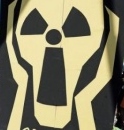http://www.asyura2.com/14/test30/msg/126.html
| Tweet |


National Geographic: Fukushima considered world’s worst nuclear accident — Physician: Fukushima remains a “global health concern” — Kaku: “It’s so bad, they don’t even have a picture of melted core… the agony is unending” (VIDEO)
ナショナル・ジオグラフィック(米国公式雑誌):福島は世界最悪の原発事故と見なされる−医師:福島は「世界規模の健康問題」を存続する−加來(道雄):「とても悪い、彼らは溶融燃料の図面さえも持っていない...苦悩は後を絶たない」(映像)
Published: April 14th, 2014 at 3:06 pm ET By ENENews
公開日:2014年4月14日、午後3:06 ET ENENewsによる
Asian Perspective Vol. 37, No. 4, Tilman A. Ruff, physician and Associate Professor in the Nossal Institute for Global Health at University of Melbourne, Oct.-Dec. 2013: A Public Health Perspective on the Fukushima Nuclear Disaster — The Fukushima nuclear disaster is far from over and remains a global health concern. While evacuations, sheltering, reducing intake of contaminated food, and other measures reduced radiation exposures, both the immediate and longer-term public health responses to the disaster leave major room for improvement. Commercially and institutionally, vested interests have undermined public health and safety. [...]
アジアの視点 37巻、第4号、ティルマンA.ラフ、医師・准教授。メルボルン大学にある世界規模健康のためのノッサル研究所、2013年10月〜12月:福島原子力災害に対する公衆衛生の視点−福島原発事故は先が見えない、そして世界規模の健康問題が存続する。避難、屋内退避、汚染された食品の摂取量を減らす、そして他の測定が放射能被曝を低減する一方、災害への即時および長期的両方の公衆衛生の応答は、改善の大きな余地を残している。商業的および制度的に、既得権益は公衆衛生と安全性を損わせている。 [...]
National Geographic, Apr. 14, 2014: The meltdown at the Chernobyl power plant in 1986 made front-page news and, until Japan’s Fukushima disaster of 2011, was considered the world’s worst nuclear accident. [...] Early estimates by the Associated Press (Dec. 16, 2000) were that the health of 3.4 million of Ukraine’s 50 million people was negatively affected, including 1.26 million children [...]
ナショナル・ジオグラフィック、2014年4月14日 (アメリカ合衆国、ナショナル・ジオグラフィック協会の公式雑誌、創刊は1888年):1986年にチェルノブイリ発電所のメルトダウンはニュースの第一面になった、そして2011年の日本の福島災害までは、世界最悪の原発事故と考えられていた。 [...] AP通信(2000年12月16日)による早期の推定値は、ウクライナの5000万人のうち340万人の健康に悪影響があった、126万人の子どもを含む。[... ]
Michio Kaku, Mar. 18, 2014 (at 1:18:00 in): The agony of 3 simultaneous meltdowns in Northern Japan […] The accident is not over at all. A small earthquake will send the accident starting all over again. You will realize that the reactor is so radioactive workers cannot even get in for more than just a few minutes at a time. […] The next thing they want to do is insert cameras into the water to see where the melting is. It’s so bad, they don’t even have a picture of the melted core. We know it’s 100 percent melted. […] The agony is unending. […] Japan said we will go nuclear because we have no oil or coal, but there is a price you have to pay — that is, you sell your soul to the devil.
加來道雄、2014年3月18日(1時間18分00秒の所で):北日本での同時3基メルトダウンの苦悩[...]事故は全く終わっていません。小さな地震が事故の二の舞を始めさせるであろう。あなた方は、原子炉は放射性が強く、作業員は一度に数分さえも立ち入ることができないと認識するでしょう。[...]彼らがやりたい次のことは、溶けた物がどこにあるかを見るために水中にカメラを入れることだ。とても残念なことだが、彼らは溶融燃料の図面さえも持っていない。我々はそれ(炉心)が100パーセント溶融したことを知っている。 [...]苦悩は果てしない。 [...]日本は、自分達は石油や石炭が全くないので原子力発電を行うと述べたが、あなた方が支払わなければならない代償がある−つまり、あなたは悪魔に魂を売る。
Watch the discussion here
ここで議論を見てください
 スパムメールの中から見つけ出すためにメールのタイトルには必ず「阿修羅さんへ」と記述してください。
スパムメールの中から見つけ出すためにメールのタイトルには必ず「阿修羅さんへ」と記述してください。すべてのページの引用、転載、リンクを許可します。確認メールは不要です。引用元リンクを表示してください。